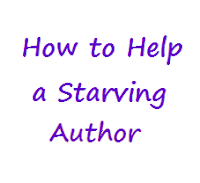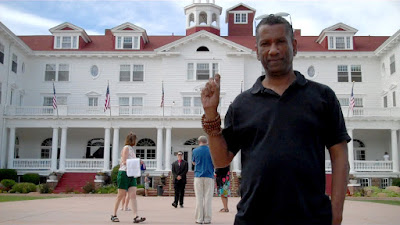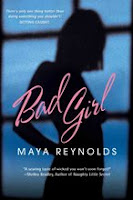
A reader recently sent me a question on Twitter...
“May I ask a question? How do you write a scene in a book that is violent without crossing a line of being too graphic -- so the reader is not disgusted or doesn’t read it because of the level of violence and how graphic it is.”A good question, and I can only assume I’ve succeeded in doing that in my first two novels, or she wouldn’t have asked me the question. At least I hope so. One of the best reviews I got for my first published story
, “Plaything”, came from Linda Addison, a fellow writer in the anthology, who said it was the most repulsive thing she’d ever read, but she couldn’t put it down because she had to know what happened next. Bingo. That’s exactly where you want to be.
After publication of Edgar Allen Poe’s
"Berenice" he was asked to tone down the more horrific elements in the name of propriety after complaints from editors. (And it is an
extremely perverse love story involving tooth fetishism and premature burial...) He defended it by claiming he was giving the public what they wanted, but later cut down the offending paragraphs and promised not to go overboard again.
There are two lessons to me there -- people do want the cheap thrills of fictitious horror, but they also want to stay safe, sane, and feel better afterwards. No one wants to leave a roller coaster with spinal injuries or vomiting up blood...why should we expect less of our horror entertainment? Its effectiveness is all in the balance. To me, violence, fear and horror are just a handful of the many emotive tools in a novelist’s bag of tricks. You can use them as needed, but always as sparingly as you use any other. It doesn’t help any story to be too heavy in one area -- terror, romance, suspense, laughs -- a successful story is a musical arrangement that allows all the elements to flow naturally, blending and balancing each other to tell a complete story.
Stephen King once described writing horror stories as akin to luring someone into an alley with promises that it’s safe, then jumping them as soon as they’re out of sight of the street -- or words to that effect. A good scary story is always a seduction. The most effective chills are willing and complicit, symbiotic; readers are letting themselves be scared with the assumption that there’s something in it for them. Usually that’s a release of their own fear or anxiety in sharing the character’s build up and release of theirs. Catharsis. For me, it’s the primary use of horror. So, how do you get a reader to stick with you long enough to get that release?
I’ve written things that appall me. Chapter Two in my first novel
"BITE MARKS" is a good example. It was the earliest written scene of deep horror in the book, and is one of a handful of chapters that remained essentially the same by publication. A teenage prostitute is brought back to life by a vampire, forced to feed on her own infant, and then brutally killed again. I won’t go into how here
(buy the book!), but suffice to say that it’s damn grim and from the beginning was something I eventually expected someone to make me cut.
Amazingly, scores of women readers have never even mentioned it when they talked to me about the book. To me it was the most awful and misogynistic act in the book -- yet it was widely accepted. It took a review on a website for me to understand that it was seen by readers as what it is -- a graphic act of rape -- and that women understand the range of sexual violence men can perform against women far better than men do.
I had hit a moment of truth in my horror. Rule one for me in writing violence. Be truthful -- not factual, as many acts of violence in fiction, especially in horror fiction, can be surreal, even impossible -- but be true to the emotional reality you’re writing. Is what is happening justified by the circumstances and characters you’ve set in motion? Which brings me to my next point.
Don’t use violence excessively or just for cheap thrills. It’s far too easy to go overboard once you open that door. My graphic opening to
"BITE MARKS" was entirely necessary to set up everything to come, and for that reason, justified. It was also strong enough that I could build up the story and characters for chapters after that without any additional use of gore, because each page the reader turned after that was informed with the dread of what horror might be next.
There are movies and books I don’t enjoy simply because they are what has become termed “gore-nography” -- shedding blood and body parts in increasingly graphic ways just because we can show it on screen or get it into print, with little or no other reason. There are terror tales out now that make Poe’s
“Berenice” look like Dr. Suess. This isn’t always a good thing. Violence is at its most effective when used to make a point or to explain a character’s progress in the story -- driven to avenge a horrific act, or trying to unravel it, as in
“Death Wish” and Jody Foster's homage,
"The Brave One", or in
“Seven”.
Humor also helps. You don’t want to undercut your mood, but a light touch of grim wit can make the medicine go down easier. It should be from the point of view of a character in the moment -- it's difficult to make a joke at your heroes' expense as an omniscient author and maintain the reader’s sympathy for them, though they certainly can. I'm sure if you look at your own life, you’ll find moments where the perverse humor in a bad situation becomes clear as you’re trying to get out of it. Used delicately, a little jest, no matter how darkly ironic, can ease enough tension to keep the reader going on without killing the moment.
Subjective viewpoint is useful. Even if you bounce from head to head, depict the violence from that point of view, not your own. Whether it’s the POV of the victim or victimizer, a subjective character voice can lend verisimilitude to what you’re writing, but also give you a way to contain it. While a horrific moment may be impossible to read when described from the victim’s view, seeing it from an eyewitness or even the victimizer’s side can open new possibilities for the writer as the reader experiences the bliss, vengeance, or whatever the character is experiencing while they either witness or wreak havoc. Few killers or torturers act for no reason -- making their motives clear can keep readers interested long enough to get through the acts described.
Language is also enormously important. How do you describe these things? What words best convey your meaning without repulsing? You can be discreet and still horrify. Hitchcock, to use another film example, was a master at making you imagine “between the lines”, giving you just enough information for your brain to fill in the rest.
This is my favorite technique, to make the reader work for and with you to make the moment as scary as only they themselves can make it. It takes time to get the hang of it -- I don’t mean throwing in references to “unimaginable” monstrosities, as Lovecraft so often does, but to masterfully describing the edges of things. Again, in Chapter Two of
"BITE MARKS", as you read it’s clear how Adam is killing Nina -- but the words I use don’t come out and say it explicitly. You have to work a bit to imagine what’s happening, which makes it all the more awful, because you become intimately involved in the experience as you visualize it. You don’t have to bludgeon or brutalize a reader to make your point -- sometimes a few gentle nudges in the right direction will get them where you want them much more effectively, without their noticing until it’s too late.
The rhythm of the build is important as well. The shower scene in
“Psycho” is effective because it comes out of nowhere, but if you watch the preceding scenes, it’s set up brilliantly. Marion’s affair with a married man and theft of her employer’s money, her flight and arrival at the Bates Motel at night in a storm, the introduction of seemingly innocent Norman in a quiet conversation that veers to the disturbing in a gloomy room filled with sinister stuffed animals...by the time Marion steps into the shower you have a feeling of disquiet you can’t quite put your finger on. When a shadowy figure appears through the shower curtain as she bathes, you’re already waiting for something to happen -- what does was shocking at the time, and surprising, but also inevitable. Set your scene well before your violence takes center stage.
Lastly, use your own judgment.
You are always your first reader. Unless you are a complete sociopath or psychotic with a literary bent (and I’m sure there are many), you have a strong moral center and a good sense of social limits. What do YOU think of what you’ve written? Does it give you the effect you want, or just make you a little queasy inside? Unless that’s what you want the reader to feel, go back, revisit it, rewrite and adjust until it does what you want it to do.
Rewrites are your best friend. I’m always suspicious of writers who claim to turn out perfect prose at one sitting and say they never have to revisit it. Ever. They are egotistical and lazy. For me, the fun is in reworking and shaping the original text until it becomes a key that unlocks the door you want opened in as many minds as possible. I don’t expect every writer to be as committed to process, but to me publication is aftermath and anticlimactic -- the real fun is in the writing.
Okay, enough. Run along now. Daddy has dragons to slay. Go ye forth and multiply the horrors in your heart -- just remember to keep them leashed so they don’t crap all over the neighbor’s lawns. I don’t want them interrupting me all day when they call to say you told them I said it was okay.
But it is. Writing horror or violence is like owning a gun. Use it properly, as you should and where you should, and we’ll all be just fine.
 Marco Palmieri is the editor behind Otherworld Editorial, a recently launched private consultation service for both aspiring and experienced authors. He is a former Senior Editor at Simon & Schuster, Inc., where from 1996-2008 he acquired and developed over 200 titles of fiction and nonfiction.
Marco Palmieri is the editor behind Otherworld Editorial, a recently launched private consultation service for both aspiring and experienced authors. He is a former Senior Editor at Simon & Schuster, Inc., where from 1996-2008 he acquired and developed over 200 titles of fiction and nonfiction.















